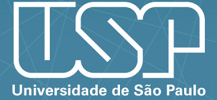Research Lines
Research in the Department of Biotechnology
(Updated: August/2015)
The Department has 21 professors coordinating interdisciplinary research of several areas of biotechnology. The research includes varied themes with strong emphasis on processes that culminate in new technologies for converting plant biomass.
The Department’s current research themes have recently been expanded and include:
Biological conversion of pentoses and hexoses from plant biomass:
– studies of microbial physiology;
– development of bioprocesses, development of bioreactors;
– recovery of fermentation products;
– search for new microorganisms better adapted for the biotransformations of lignocellulosic materials and/or their fractions.
Professors involved:
- Arnaldo Márcio Ramalho Prata
- Flávio Teixeira da Silva
- Inês Conceição Roberto
- Júlio César dos Santos
- Maria das Graças de Almeida Felipe
- Rita de Cássia Lacerda Brambilla Rodrigues
- Sílvio Silvério da Silva
- Walter de Carvalho
Pretreatment of plant biomass and the development of contemporary biorefinery models:
– chemothermomechanical processing;
– acid hydrolysis and autohydrolysis;
– steam explosion processing;
– organosolv processes;
– biotreatment.
Professors involved:
- Adriane Maria Ferreira Milagres
- André Ferraz
- Flávio Teixeira da Silva
- Júlio Cesar dos Santos
- Inês Conceição Roberto
- Maria das Graças de Almeida Felipe
- Sílvio Silvério da Silva
- Valdeir Arantes
- Walter de Carvalho
Enzymatic hydrolysis of lignocellulosic materials:
– production and purification of enzymes;
– studies on mechanisms of enzymatic action;
– development of processes and reactors for enzymatic conversion of biomass;
– development of methods and new substrates for quantification of enzymes;
– study of the origins of recalcitrance of vegetal biomass.
Professors involved:
- Adriane Maria Ferreira Milagres
- André Ferraz
- Flávio Teixeira da Silva
- Inês Conceição Roberto
- Júlio Cesar dos Santos
- Sílvio Silvério da Silva
- Valdeir Arantes
Pulp, paper and derivatives from wood and agricultural residues:
– development of biopulping processes;
– studies on the mechanisms of wood biodegradation;
– enzymatic recovery and derivatization of xylans;
– preparation of cellulose nanocrystals and cellulose nanofibrils by enzymatic route;
– kraft and chemothermomechanical pulping;
– microbiological control of cellulose production processes.
Professors involved:
- Adriane Maria Ferreira Milagres
- André Ferraz
- Valdeir Arantes
Characterization of lignocellulosic materials:
– traditional methods of analysis of plant cell wall components;
– studies of the topochemical distribution of lignin and hemicellulose;
– lignin-carbohydrate complexes.
Professors involved:
- Adriane Maria Ferreira Milagres
- André Ferraz
- Flávio Teixeira da Silva
Fermented and distilled beverages:
– development of new brewing processes;
– production of distilled beverages.
Professors involved:
- João Batista de Almeida e Silva
- Ismael Maciel de Mancilha
Processes for the treatment and reuse of industrial effluents, surface waters and contaminated sediments:
– characterization and monitoring and treatment of industrial effluents;
– characterization and ecotoxicological monitoring of surface waters and sediments.
Professors involved:
- Flávio Teixeira da Silva
- Teresa Cristina Brazil de Paiva
Genomics and Plant Biotechnology:
– Bioinformatics and phylogeny of genes involved in plant cell wall biosynthesis (from algae to angiosperms);
– Expression of genes and correlation with the chemical composition of the cell wall;
– Study of plant proteins with potential effect on plant biomass;
– Synthetic plant biology to reduce plant recalcitrance and improve plant biomass.
Professors involved:
- Elisson Antônio da Costa Romanel
- Tatiane da Franca Silva
Compounds and microorganisms with probiotic characteristics:
– development of products in the area of animal nutrition and pharmaceutics.
Professor involved:
- Ismael Maciel de Mancilha
Heterologous expression in filamentous fungi:
– secretomics of fungi that degrade polymers of vegetable origin;
– heterologous expression of glycosyl hydrolases and oxidative enzymes;
– construction of “cell factories”.
Professor involved:
- Fernando Segato



 Imprimir
Imprimir